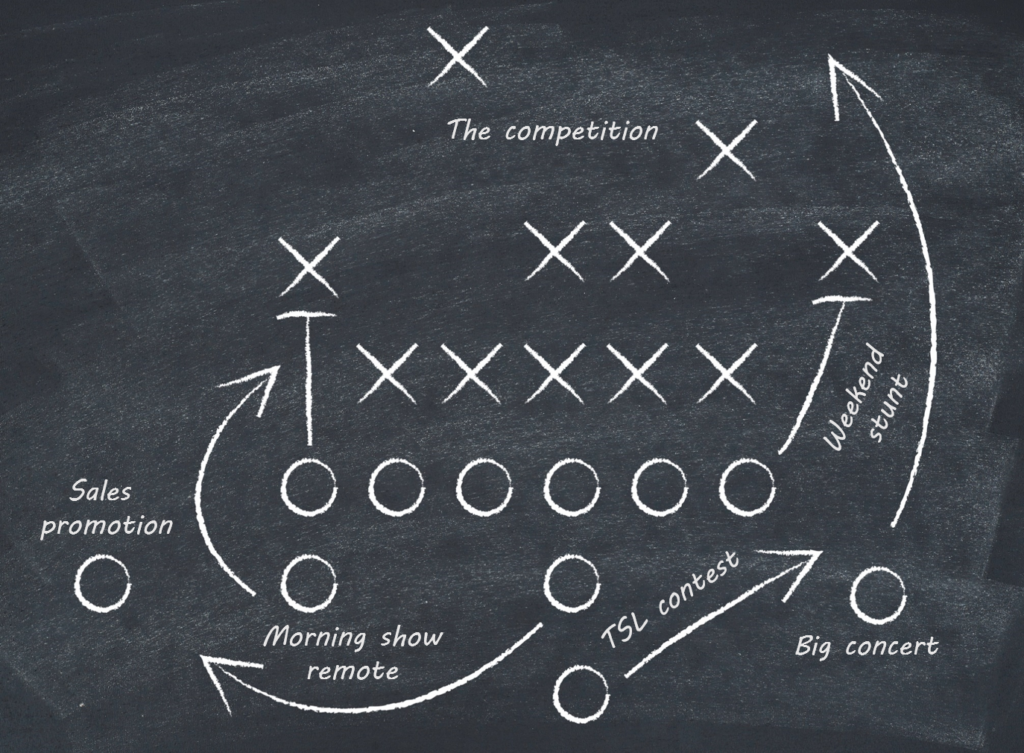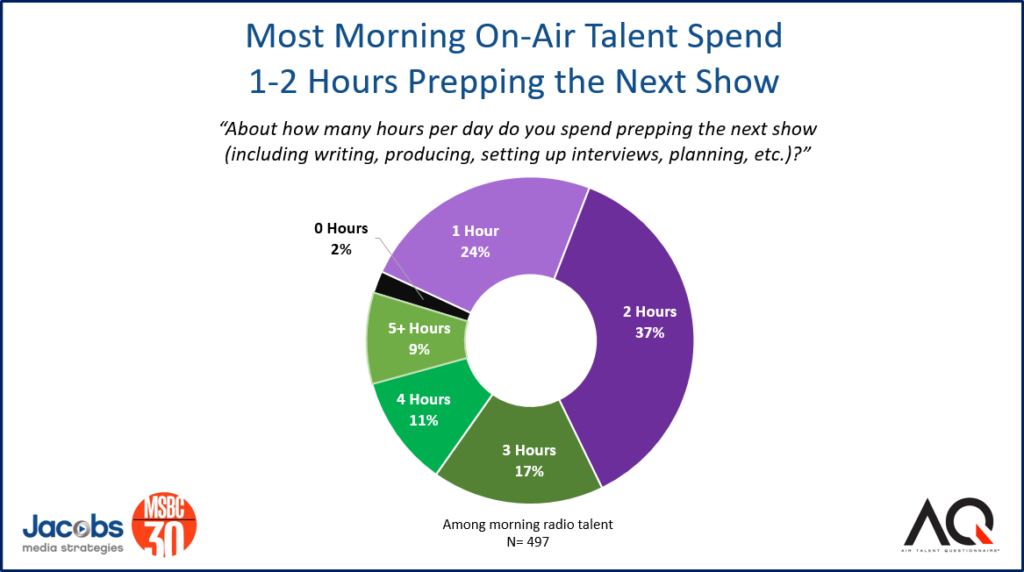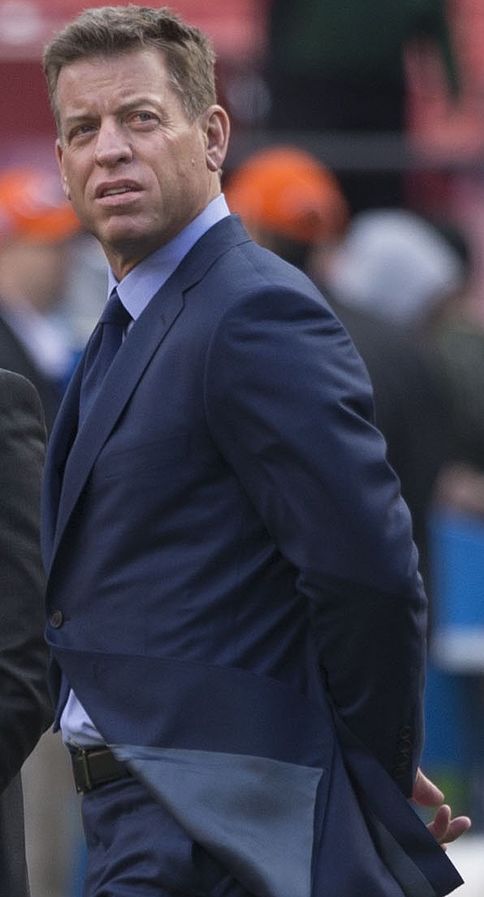
In radio discussions I’ve engaged in over the years, a common theme is talking about great talent and breaking down what made/makes them so good.
Regardless of the era in which you came up in the business – whether it was J. P. McCarthy, Larry Lujack, Mark & Brian, or Charlamagne tha God, programmers and talent coaches love to debate why those who have truly lasted have enjoyed such great longevity.
Regular readers of this blog know I love a great analogy. It can be instructive to study talent from other media to see how their habits and mindset might stand out as great examples for radio talent. So, please indulge me in another sports story from a few years back that continues to resonate today.
For today’s #TBT, this is what was on my mind six years ago this month. The comparison to radio talent was a former pro football great making the transition to the TV booth. Shades of exactly what Tom Brady is doing this NFL season as he vies to be the G.O.A.T. on the gridiron and now behind the mic.
The guy I highlighted is Troy Aikman, former Dallas Cowboy great, still excelling on sports television on Monday Night Football with his partner, Joe Buck. The two are now the longest-running announcing team in NFL history. In my book, that’s worth emulating. – FJ
October 2018
If you’ve been in the radio workforce for any length of time, one reality that has most likely hit home is the need for preparation, no matter where you fall on the station’s organization chart. Whether you’re in sales, programming, engineering, or digital media, the more you’ve done your homework, chances are the better you’ll form.
And there’s no place where that tenet rings true than in the air studio. As PPM has become the currency for more than a decade now, the emphasis on content rich, economical talk has become even greater emphasis among programmers. With only two breaks an hour on most music stations, time is short to say something entertaining or of value before moving onto the next element.
Talk to any of the old-timers in radio, and they’ll tell you how the great Top 40 jocks – Dan Ingram, John Landecker, the real Don Steele – had the great ability to pack a lot of punch in the opening strains of “California Girls” until they brilliantly “hit the post.”
It was about show prep then – and it’s about show prep now. As my friend and fellow consultant, Alan Burns, is fond of saying:
TSP = TSL
The more time you spend prepping for your show, the greater your time spent listening.
Preparation is one of those highly individualized disciplines that varies greatly from show to show, host to host, and jock to jock. That became evident to me when we analyzed the results from our AQ survey of air talent this past spring. Overall, more than 1,100 radio on-air practitioners took part in the survey, providing a first-ever look at the mindset of talent.
When we just zeroed in on morning talent (nearly 500 respondents strong), we learned that six in ten of them spend 1-2 hours prepping the next day’s show. No judgment here – writing, producing, planning, and executing five shows a week, 48 weeks a year, is no easy feat.
But is that enough preparation to truly put together a show that keeps the audience coming back for more? How much time does it require to truly a produce and execute a “must hear” radio show?

For inspiration, look no further than the gridiron and to former Dallas Cowboy Troy Aikman, now the “color guy” to Joe Buck on the Fox-TV NFL broadcasts. A recent feature story on the three-time Super Bowl winner in the LA Times by Sam Farmer is entertaining for sports fan – and a primer for on-air talent about what it takes to be a star TV commentator.
This year, Aikman and Buck’s workload doubled – they now cover the Thursday night games, in addition to their usual Sunday prime time slot. And as Farmer notes, that doesn’t include conference calls with the coaches and players, as well as face-to-face meetings ahead of each game.
Farmer reports that Aikman’s prep routine isn’t dissimilar to what he used to do for games as the Dallas Cowboys quarterback. Except now he has to prep both the offense and the defense – and not just what it’s like from the QB’s POV.
And how important is doing your homework for football broadcasts? Joe Buck has the answer:
“Everybody over-prepares out of insecurity. Then I walk out of here and realize I used 10% of this.”

Aikman’s brilliance as an analyst is that he brings his pro quarterback style and sensibility to the TV booth – and provides a great step-by-step practice routine for radio air talent. Farmer’s story offers up a 6-pack of great lessons for radio personalities – whether on a morning drive, hosting a talk show, or playing Metallica, Jason Aldean, or Cardi B at night.
1. He manages his time – Just like on the radio, time is everything. Farmer reports Aikman moves through his routine and interviews briskly and efficiently. He has a strong realization about how easy it is to get sidetracked and distracted. And he respects the time of the players and coaches he talks to throughout the week.
2. He is a stickler about clock management – When you play football, you’re constantly cognizant of time: the game clock, the play clock, a safety blitz, and the other ticking pressures involved in running an offense. In typical PPM fashion, Aikman speaks in a clipped style, managing his words carefully. When you listen to his commentary, quips, and analysis, you don’t hear rambling, stream of consciousness, or small talk. He gets to the point, typically with something meaty, observant, and relevant.
3. He has his relationship with fans in perspective – Acknowledging that viewers cheering for their favorite teams are always going to be angry with hm at times. It’s the same way when you host a radio talk show or even answer the studio lines or check the station’s Facebook page or Twitter feed. We live in a time when consumers are even more free to sound off, get it off their chest, and blow off a little steam.
And as Aikman firmly believes, “If fans of both teams are mad at him, he’s doing his job.”
By the same token, he doesn’t get distracted by the adulation and accolades either. It’s easy to get caught up in the glad-handing, fist-bumping, and praise – to a point where it impacts your job and your performance.
4. He airchecks himself – After games, Buck and Aikman are handed thumb drives of their game for review. Whether you’re in a TV booth or a radio studio, that’s how you get better, eliminate mistakes, and make sure tomorrow’s show (or game) is a step in the right direction.
As we also learned in AQ, four in ten radio personalities say they are never airchecked. That’s even more reason for talent to manage their own performances in much the say way Aikman does. When you’re your own worst critic, there’s always room for improvement.
5. He’s a student of the game – That was the case when Aikman wore a Cowboys uniform or when he’s in the booth with Buck. Farmer quotes former running back, Calvin Hill, who spent years around the Cowboys camp:
“Troy’s the kind of guy who sits in the front of the class in the middle row and takes meticulous notes. If he loses, or he fails, it’s not going to be because he didn’t prepare.”
Several years ago, I started working with the great KUPD in  Phoenix. PD Larry McFeelie brought me into a crowded jock meeting for two presentations I had put together. I didn’t know a soul in the room, but there was one guy taking notes and peppering me with good questions and observations. I remember wondering who this guy was, until others in the room starting referring to him as John.
Phoenix. PD Larry McFeelie brought me into a crowded jock meeting for two presentations I had put together. I didn’t know a soul in the room, but there was one guy taking notes and peppering me with good questions and observations. I remember wondering who this guy was, until others in the room starting referring to him as John.
It turned out to be the station’s morning show quarterback, John Holmberg, who had already been in the station for eight hours, sucking up whatever knowledge he could get.
6. He has his ego in check – How else do you explain the Miller Lite commercial where Aikman sends up his football fame in a party store with a Cowboys fan? Self-deprecation is one of the most endearing qualities a major personality can possess. It instantly makes him likeable, disarming elitism and celebrity. Aikman realizes that whether as a quarterback or a commentator, it’s a great trait.
So speaking of 6-packs, enjoy Aikman’s send-up of himself:
Thanks to Dave Beasing and Sam Farmer.
- What If Radio Tried Something Right Out Of Left Field? - May 9, 2025
- Why Radio PDs Are A Lot Like NBA Coaches - May 8, 2025
- Memo To Radio: We Have Met The Enemy And It Is… - May 7, 2025




Like TA, I used 10% of what I’d prepped – I’d hold over prep until the EXACT moment it was appropriate. But, I prepped every waking moment. I emailed myself stories & audio all day and organized & printed it in the couple hours before the show.
The obsession with prep really began with the internet and worrying that I’d miss something. I rarely did. My competitors were never able to outwork me. What a relief when I retired. I just shut off.
Thanks to the Internet, it’s a burden to try to catch everything. (I feel that way with this blog). Thanks for pointing it out.
I’m with Pierce on this. The internet opened an endless number of resources when it came to show prep. If you do not prep daily and thoroughly, you do not deserve a job. We all know “somebody” who insists that they desire to come off as real or authentic, and prep stifles that. They are wrong. They are lazy-and 99 times out of 100 they lose.
I recall a GM of mine who cited Howard Stern as a great example of a guy who just went in there and ‘winged it’ yet he did so well. Once day I showed him a video of what goes on behind the scenes of the Stern show during commercial breaks. He changed his tune. And to ever think that Stern was unprepared or just yanked it out of his ass was laughable.
I thought of Larry King who made a point NOT to prep, not to read the books his guests had written, so he could approach them with the same wide-eyes naiviete his viewers had. What a crock! Give me Aikman any day.
Show prep is the vaccination for doing a good show.
I thought there are no needles in radio. 🙂
On top of being a prep monster, Troy Aikman is likable. He’s handsome. His voice has a pleasant tone. He’s a Hall of Famer. He used to wear the star of America’s Team on his helmet. He’s a perfect model for TV.
But…he’s a complete snooze. He rarely delivers any insight like Greg Olsen or Charles Davis or Kirk Herbstreit, or any predictive content and enthusiasm like Tony Romo—all former players working the same space. Mostly I hear Aikman merely REACTING to his good friend Joe Buck, who is excellent at his job. Aikman majors in agreeing with Buck. Listen closely. “That’s exactly right, Joe, Barkley DID hit that hole quickly, and WAS able to come up with a nice gain for a first down.” Aikman the “football analyst,” rarely analyzes what he’s just witnessed. He verifies what his broadcast partner has just described.
I think he’s the broadcasting equivalent of a Yes Man. He’s Waylon Smithers. He’s Ed McMahon. And he earns $18 million a year in exchange for his weekly assignments on ESPN.
Prep is not everything.
No, you’re right, Dave. But there’s a Ryan Seacrest on every platform. They won’t overwhelm you, they’re not funny, and you rarely comes away with insights or super memorable moments. But they are great at what they do, affable, easy on the eyes, and nice to have around. Thanks or chiming in on this.